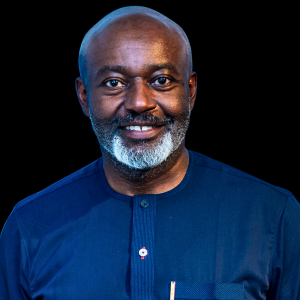UN Resident Coordinator
- Our host, Norway Embassy led by H.E. Ambassador Gjermund Saether;
- Minister Nkosazana Dlamini-Zuma, of the Department of Women, Youth & People with Disabilities
- Director General, Joyce Malukele of the Department of Women, Youth & People with Disabilities, and her team,
- diplomatic missions including Australia and Finland, our guests of honour, members of the Young Women for Life movement and
- the Southern African Catholic Bishops Conference, representatvies of Youth@SAIIA and
- our hosts UN Women South Africa Multi-Country Office and UNAIDS South Africa.
Today marks the 13th day of the 16 Days of Activism against Gender Based Violence against women and children.
This is a time we can pause and reflect on the progress we are making, or not making, towards achieving a violence-free society where women and girls live free and safe.
Launched in 2008, the United Nations Secretary-General’s UNiTE to End Violence against Women campaign aims to raise public awareness and increase political will and resources for preventing and ending all forms of violence against women and girls in all parts of the world.
UN Secretary-General has declared violence against women as a "horrific violation of human rights, a public health crisis, and a major obstacle to sustainable development. We still live in a male-dominated culture that leaves women vulnerable by denying them equality in dignity and rights,"
Violence against women and girls remains the most widespread and pervasive human rights violation worldwide.
Violence affects more than an estimated 1 in 3 women, and this figure has remained largely unchanged for over the last decade.
Change in this trend is not only needed, itis an absolute necessity and everyone’s responsibility.
The UN Secretary-General announced this year's theme of the UNiTE campaign as "Invest to Prevent Violence against Women & Girls," calling on all individuals, communities, and nations to take decisive action. The UNiTE Campaign is the UN System wide campaign, which works closely with civil society, governments, the private sector and the media in support of the delivery of the Sustainable Development Goals (SDGs) and specifically its targets focused on preventing and ending violence against women and girls.
We need willpower and action from all relevant stakeholders.
These actions in achieving the Sustainable Development Goals require resources, policies, commitments and programmes that focus on reaching and involving the most marginalized communities.
Unfortunately, economic crises, conflicts, and climate change have exacerbated violence against women and girls, increasing their vulnerability. November 25th was officially chosen by the United Nations as the International Day for the Elimination of Violence against Women.
We are at the halfway mark to the 2030 Agenda for Sustainable Development, and truth is that the world is failing to end violence against women and girls, making it an increasingly distant goal, but also even more urgent. Consequently, this will impact the achievement of all the other Sustainable Development Goals as well.
We simply cannot achieve Sustainable Development Goals without Gender Equality, inclusion and empowerment of women.
Furthermore, particularly looking at health - women and girls are highly affected by HIV and AIDS not only because of their greater biological susceptibility to HIV transmission, but also because of their unequal cultural, social, and economic status across society.
In South Africa, from the 7.6 M people living with HIV, 63 % are women. We need to tackle the social norms that perpetuate violence against women and girls, and increased HIV infections. And the truth is that without dedicated investment – as the theme for this year’s campaign states, countries will not achieve the target of eliminating violence against women and girls by 2030. We need stakeholders from different sectors of society to take decisive action to see a positive change in the lives of women and girls.
For those with the means that translate into allocating more budget to programmes, such as the one we’ll hear about today from Young Women for Life Movement – where communities lead and develop their own solutions to ending VAWG and HIV infections, especially among young women.
Looking forward to hearing more from this community led programme and to learning, how we can make a change.
Thank you.





